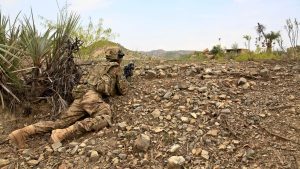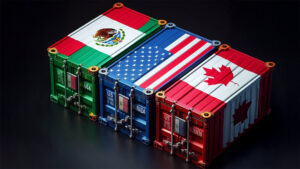The Sinaloa Cartel, once the dominant organized crime group in Mexico, is turning on itself. This is just another notch along the downward spiral of the Sinaloa Cartel since the arrest of El Chapo years back.
The most recent fighting started after “El Mayo”, a top cartel figure, was betrayed by one of El Chapo’s son and arrested in the US. This newly vacated position caused a power struggle and each of the cartel’s factions is hoping to grab control. The fighting is currently the worst in the Sinaloa state, but is expected to spread throughout Mexico and even spill into the US.
As the fighting ramps up and chaos ensues, we can expect to see disruptions to the distribution network and perhaps the worst news for those who love the white powder…higher prices.
Here at Zeihan On Geopolitics we select a single charity to sponsor. We have two criteria:
First, we look across the world and use our skill sets to identify where the needs are most acute. Second, we look for an institution with preexisting networks for both materials gathering and aid distribution. That way we know every cent of our donation is not simply going directly to where help is needed most, but our donations serve as a force multiplier for a system already in existence. Then we give what we can.
Today, our chosen charity is a group called Medshare, which provides emergency medical services to communities in need, with a very heavy emphasis on locations facing acute crises. Medshare operates right in the thick of it. Until future notice, every cent we earn from every book we sell in every format through every retailer is going to Medshare’s Ukraine fund.
And then there’s you.
Our newsletters and videologues are not only free, they will always be free. We also will never share your contact information with anyone. All we ask is that if you find one of our releases in any way useful, that you make a donation to Medshare. Over one third of Ukraine’s pre-war population has either been forced from their homes, kidnapped and shipped to Russia, or is trying to survive in occupied lands. This is our way to help who we can. Please, join us.
Transcript
Hey everybody, Peter Zeihan here. It is the 22nd of September here in Colorado. Well, I guess not just in Colorado. Anyway, the news today is coming out of Sinaloa state in northern Mexico, where there have been at least 100 murders and a whole bunch of abductions as the Sinaloa Cartel is basically devolving into civil war.
Now, the Sinaloa Cartel is rather unique among organized crime groups in that it’s not simply about power or money. It’s run as a business. There was a guy by the name of El Chapo who used to run the place, and he essentially brought together all his chapter leads to compare best practices and figure out how they could run drugs to the United States with less friction and disruption to local law enforcement and local populations.
The concept was pretty straightforward: “Don’t shit where you sleep.” The goal was to maintain good relations with the people where they operated, so they wouldn’t turn on the cartel or go to the government for help. This strategy allowed Sinaloa to become the largest organized crime group in Mexico by far.
However, they were so successful that the United States made El Chapo public enemy number one. Eventually, the U.S. was able to capture and extradite him. He’s now serving multiple life sentences in the American prison system, where he’ll never see the light of day again.
That left his organization in the hands of others who aren’t as competent as he was. El Chapo was, without a doubt, a murderous thug, but he was a murderous thug with a business degree and some managerial skills. Since his capture, the factions he used to control have started to go their own way.
Things really started to unravel back in July, when Ismael Zambada, also known as El Mayo, who used to be the accountant and has taken over most of the operations, was lured to Texas by one of El Chapo’s sons. The second he landed, American law enforcement arrested him. It appears that El Chapo’s son betrayed El Mayo and turned him over to the authorities.
Now, El Chapo has more than one son, and each of them controls a faction of the organization. With El Mayo out of the picture, they’re now fighting among themselves for his share of the cartel.
Cartels aren’t monolithic, especially in a place like Mexico where internal transportation is difficult. The cartel is made up of several dozen groups, mostly locally defined, where local chapters might even use different names, have different organizational structures, and only give lip service to the central leadership. It’s like Canadian politics, but with a lot less politeness.
As long as there’s a strong leader who’s skilled with words and has a firm hand, this system can work and hold together. But when the leader is in prison, his deputy is in prison, and his kids are fighting over what’s left, things fall apart quickly.
Now we’re seeing the largest organized crime group in Mexico break down, and Sinaloa, the heart of the organization, is where the splits are occurring. Over the next few weeks, we can expect to see this violence expand, not just beyond Sinaloa into the rest of Mexico, but also north of the border.
El Chapo’s business-minded approach didn’t just make Sinaloa the largest drug-running group in Mexico—it made them the largest organized crime group on the planet, including in the United States. As the leadership fights among themselves, we’ll see similar breakdowns in their local distribution and retail operations, especially in the U.S., where many of their operations are carried out by local gangs.
This will likely lead to higher drug prices due to distribution disruptions and more violence as the organization fractures at the regional and local levels. Whether that’s good or bad, I’m not sure.








